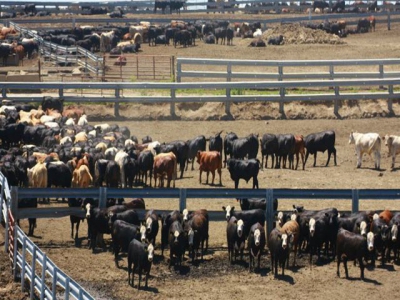Cattle disease traceability project moving forward

Kansas project aims to help guide discussion, development of national program.
Announced publicly in June, the Kansas-based CattleTrace pilot project is on track to begin testing a purpose-built infrastructure for cattle disease traceability by fall 2018. The project expects to help guide discussion and development of an enhanced traceability system in Kansas and on a national scale.
In late August, CattleTrace Inc. was formally established as a private, not-for-profit corporation to securely maintain and manage the data collected as part of the disease traceability pilot project. A board of directors was also named to lead the corporation. The board includes chairman Brandon Depenbusch, Innovative Livestock Services; vice chairman Tom Jones, Hy-Plains Feedyard LLC; Mike Samples, Farmers & Ranchers Livestock; Ken Stielow, Bar S Ranch, and Mark Gardiner, Gardiner Angus Ranch. The board appointed an industry advisory committee comprised of representatives from the Kansas Livestock Assn., Kansas State University, Kansas Department of Agriculture and private industry to implement operations of the project.
“Producer privacy and data security are critical components of a disease traceability system,” Depenbusch said. “Establishing a private entity to own the CattleTrace database will provide necessary security to ensure the cattle movement data in the CattleTrace system is safe.”
Since the June 30 announcement, the CattleTrace advisory committee has been focused on recruitment of participants within each segment of the beef supply chain. Tyson Foods Inc., Cargill and National Beef Packing Company LLC, and U.S. Premium Beef LLC will all participate in the pilot representing the beef processing sector. Feedyard participants include Green Plains Cattle Co., Hy-Plains Feedyard LLC, Finney County Feedyard LLC, Midwest Feeders Inc., NA Timmerman Inc., Cow Camp Beef, Innovative Livestock Services Inc., Fairleigh Feed Yard, High Choice Feeders, Heritage Beef LLC, Pratt Feeders LLC, and Poky Feeders Inc. Livestock market participants currently include Farmers and Ranchers Livestock in Salina, Winter Livestock in Dodge City, Winter Livestock in Pratt, Mankato Livestock Inc., LaCrosse Livestock Market, Inc., and Manhattan Commission Co.
Depenbusch said the advisory committee is now turning its focus to the installation of technology systems at the packer, feedyard and livestock market levels and also the recruitment of cow-calf producers.
“We have received tremendous support and commitment from industry participants, and we thank the industry leaders who have already stepped up to participate in CattleTrace. Now, we are excited to start recruiting cow-calf producers to the project,” he said. “If you are a rancher who does business with one of the livestock markets or feedyards that are partners in the CattleTrace pilot project, we encourage you to consider participating.”
One of CattleTrace’s primary objectives is to test the infrastructure from end-to-end, he explained. “Cow-calf producers will help achieve that objective and will also play an important role in the development of a cattle disease traceability system that works in and for the industry.”
During the two-year pilot project, CattleTrace will collect the minimal data necessary for disease traceability, including the date and time, an individual animal identification number and a GPS location, each time an animal’s tag is read with pilot project readers in the production chain. Approximately 55,000 Kansas-based calves will be tagged for the pilot, which will conclude in 2020.
Related news
 Essential oil, enzyme blend may provide ionophore replacement for dairy cows
Essential oil, enzyme blend may provide ionophore replacement for dairy cows Supplementing feed with an essential oil, enzyme blend supports ruminal fatty acids and milk production efficiency and may provide an alternative to antibiotic
 Low feed costs expected to boost Brazil’s cattle, swine production
Low feed costs expected to boost Brazil’s cattle, swine production Feed costs and export demand are two of the elements predicted to boost animal protein production in Brazil in 2019.
 Learn about beef BLUP basics
Learn about beef BLUP basics Producers use breeding values to determine the long-term value of certain animals to their herds.